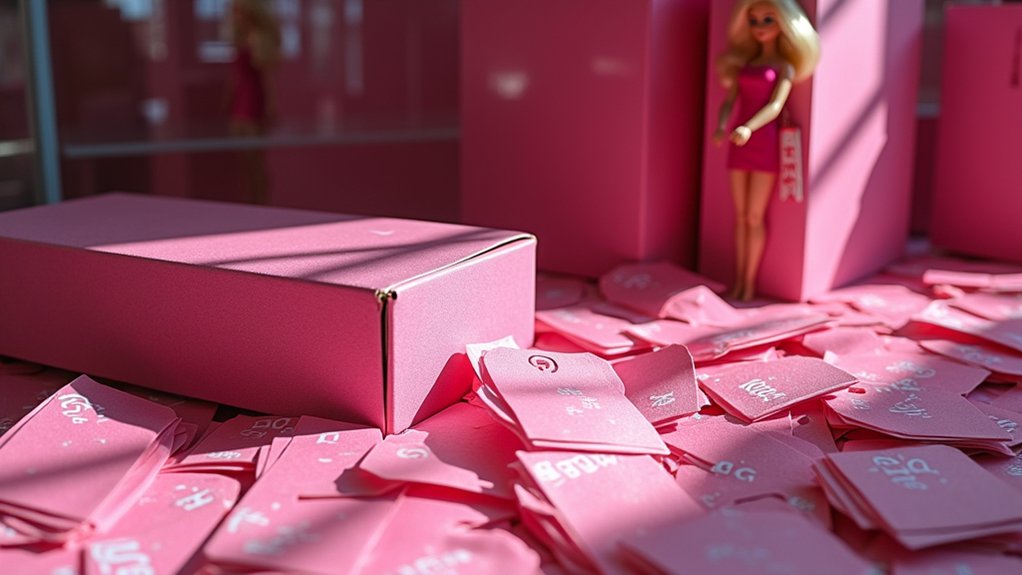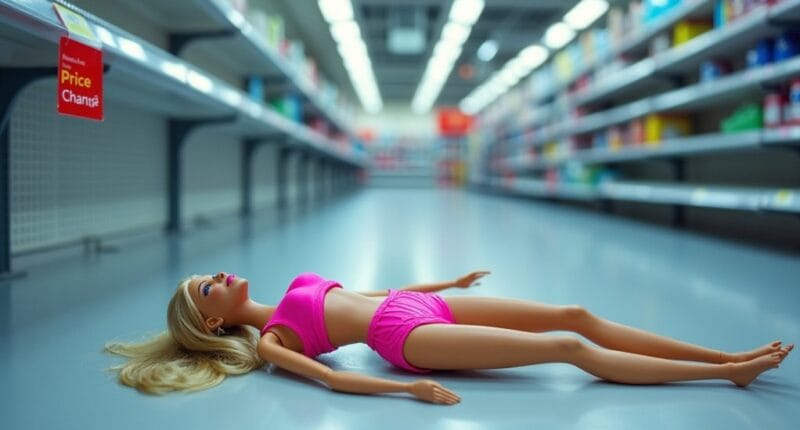Barbie’s getting an unwanted makeover – and it’s hitting wallets hard. Trump’s proposed 145% tariff on Chinese imports has sent the doll’s price soaring 42.9% to $14.99 in just one week. With 80% of U.S. toys coming from China, Mattel faces $270 million in extra costs by 2025. The company’s scrambling to shift production elsewhere, but it’s not enough. Parents are watching their kids’ favorite toys transform from everyday purchases into luxury items – and that’s just the beginning.

How much are parents willing to pay for plastic perfection?
Mattel’s iconic Barbie doll just got a whole lot pricier, thanks to Trump’s whopping 145% tariff on Chinese imports.
The proof? A basic Barbie in a swimsuit at Target jumped 42.9% in a single week, hitting $14.99.
Not exactly pocket change anymore.
The tariff tsunami is hitting the toy industry hard, with nearly 80% of U.S. toy sales coming from China.
The toy industry faces a brutal wake-up call as Chinese imports dominate U.S. shelves, leaving manufacturers scrambling amid soaring tariffs.
Mattel’s looking at a staggering $270 million in extra costs for 2025 alone.
That’s a lot of pink convertibles and dream houses.
The company’s already feeling the pinch, with first-quarter losses ballooning to $40.3 million from $28.3 million last year.
These price increases could trigger significant inflation rates, affecting the broader economy beyond just toys.
Mattel’s scrambling to adjust, trying to shift production out of China faster than Barbie changes careers.
But here’s the kicker – these supply chain gymnastics won’t be enough to offset the tariff hit completely.
Meanwhile, some toy companies have simply thrown in the towel, halting U.S.-bound shipments entirely.
The company aims to reduce China-sourced products to under 15% by next year.
Mattel plans to manufacture toys across seven different countries to diversify production.
The Toy Association isn’t taking this lying down.
They’re pushing hard for zero tariffs on toys, warning that this trade war threatens Americans’ access to everyday playthings.
It’s not just about luxury items anymore – we’re talking about basic toys becoming unaffordable luxuries for many families.
The uncertainty is wreaking havoc on Mattel’s bottom line.
They’ve yanked their annual earnings forecast faster than a kid unwrapping presents on Christmas morning.
Sure, revenue rose 2% to $827 million, beating expectations, but their stock still took a 3% nosedive after the tariff news broke.
Parents are getting nervous, and retailers are bracing for impact.
The days of casual toy shopping might be over, replaced by careful calculations and painful choices.
It’s a new reality where even Barbie’s perfect plastic world isn’t immune to economic turbulence.
Welcome to 2025, where playing dress-up comes with a hefty price tag.





